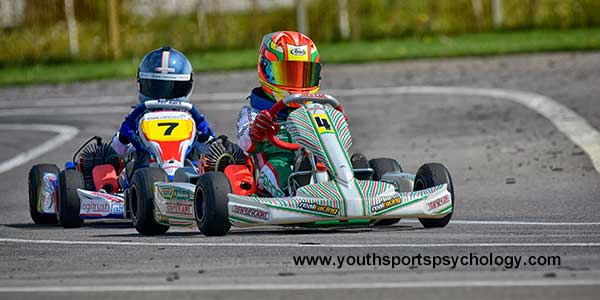
How to Reduce Pressure in Youth Sports
Have you ever heard your sports kids say, “Sports is my whole life,” or “I live for basketball,” or “Eat. Sleep, Play soccer.”
Many athletes wrap their self-worth around sports. They surround themselves with like-minded teammates who are their main source of social interaction.
This means that these kids’ lives are consumed by their sport. This can be dangerous. When they’re overly wrapped up in sports, injuries can undermine their self-esteem. Bad performances can feel like total failure and hurt their self-worth.
What’s more, they’re afraid they may fail to live up to others’ expectations. They worry about losing friends because they advance faster than others.
Help your young athletes understand that it’s important for them to pursue a balanced, well rounded life. That means that when they’re training, they should give 100 percent. But when they’ve finished practicing, competing, or kicking a ball around outside, they should leave their sport behind as much as possible.
If kids can focus on more balance, they’ll feel less pressure when competing and will improve their performance. Finding balance may mean pursuing art, music or reading. It may mean taking a break from sports.
Here’s a helpful story about how one athlete improved her performance and reduced the pressure she was experiencing.
Mirinda Carfrae is a triathlete who competes in the Ironman. Ironman is an event that consists of a 2.4-mile swim, a 112-mile bike leg and a 26.22-mile run. The
Ironman is both grueling and over seven hours long. The training is even more grueling and time-consuming. Many hours of dedicated training can be life-consuming.
In 2013, Carfrae set the Ironman World Championship course record and has seven podium finishes including winning the event three times. Despite her tremendous success, Carfrae hit a patch where she experienced a sense of staleness. Staleness is a term used to describe difficulty maintaining training regimens or maintaining motivation to pursue personal goals.
“Prior to having Isabelle, triathlon was my whole world. Early in my career I needed to win to pay the bills, I needed to win to eat. It can be a bit of a pressure cooker,” she said.
Carfrae’s attitude changed after the birth of her daughter. She took a significant break from competing.
“I have absolutely loved racing, but prior to having [my daughter] Izzy, it was just getting a bit stale. I took 2017 off. I think that was a welcome shift for me, just having a different outlook. The perspective just shifts. Everyone knows that triathlon is not the most important thing. But once you have a child, you are OK with everything. I don’t stress about the minor things,” she said.
Now Carfrae is competing again and performing at an elite level, but feeling less stress.
Helping Athletes Find Balance
Finding balance is critical. Help kids understand that they’re more than just athletes. With more balance and less pressure, kids are more likely to perform at their peak.
Remind young athletes that they compete for fun and the thrill of competition, not to please others. Sports should not define them.
Kids need to take a step back and look at who they are outside of sports. How do they describe themselves as people? How do others describe them? These questions help them take a look at their self concept.
Help kids feel comfortable with who they are. Help them find balance outside of sports. This will boost their self-esteem, even when they perform poorly.
Related Articles on Kids’ Mental Game:
- Tips for Playing Under Pressure
- Why Kids Choke Under Pressure
- How to Deal With World Cup Pressure Like The Pros
*Subscribe to The Sports Psychology Podcast on iTunes
*Subscribe to The Sports Psychology Podcast on Spotify
Improve Your Mental Game From Anywhere In The World

We’re certain that, as a parent, you want to help your child develop confidence and discipline in sports and life. And as a sports parent, you’d love for your children to reach their potential in sports. But encouraging your child to strive for greatness without pressuring them can be a challenge.
You can get expert mental coaching with us from anywhere. Meet with us via Zoom, Skype, FaceTime or phone call. With today’s video technology, we are able to connect with athletes and coaches all over the globe.
Call Us Today to Schedule Your Free 15-Minute Session.
Find Out How Your Athlete Can Benefit From One-on-One Mental Coaching!
